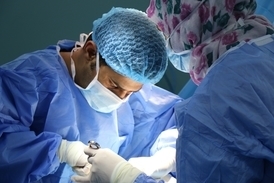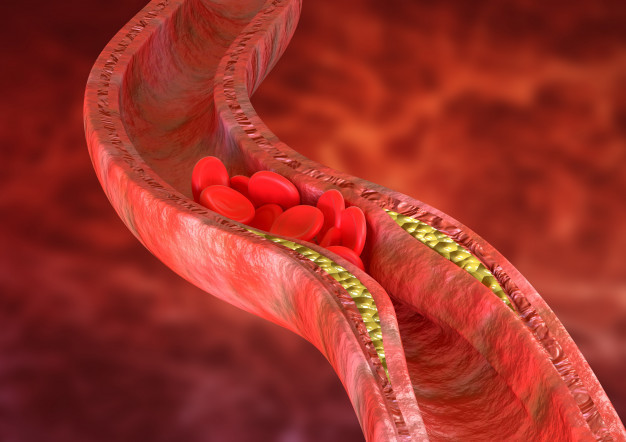رأب الأوعية التاجية
احصل على تكلفة رأب الأوعية التاجية في نيو دلهي
أفضل الأطباء لـ رأب الأوعية التاجية في نيو دلهي
एमबीबीएस, एमएस - सर्जरी, पीएचडी - हृदय सर्जरी
رئيس قسم علوم القلب ورئيس قسم جراحة القلب والأوعية الدموية والخدمات السريرية
41 سنوات من الخبرة, 0 جوائز
جراحة القلب عند الأطفال
MBBS, एमडी, डीएम - कार्डियोलोजी
استشاري أول - أمراض القلب
29 سنوات من الخبرة,
أمراض القلب الكهربية
MBBS, MD - Internal Medicine, DNB - Cardiology
استشاري - أمراض القلب
15 سنوات من الخبرة, 0 جوائز
أمراض القلب الكهربية
MBBS, एमएस - जनरल सर्जरी, एमसीएच - कार्डियो थोरैसिक और वैस्कुलर सर्जरी
مستشار أول - CTVS
40 سنوات من الخبرة, 0 جوائز
جراحة القلب
رأب الأوعية التاجية التكلفة من المستشفيات الموثوقة في نيو دلهي

Human Care Medical Charitable Trust, Adjoining MTNL Building, Delhi NCR, NCT Delhi, 110075, India
Multi Speciality Hospital

A Block, Shalimar Bagh, Delhi NCR, NCT Delhi, 110088
Multi Speciality Hospital

Near TV Tower, Wazirpur District Centre, Pitampura, Delhi NCR, NCT Delhi, 110034
Multi Speciality Hospital

Sector B, Pocket 1, Aruna Asaf Ali Marg, Vasant Kunj, Delhi NCR, NCT Delhi, 110070
Super Speciality Hospital

Meera Enclave ( Chowkhnadi), Near Keshopur, Sabzi Mandi, Delhi NCR, NCT Delhi, 110018, India
Multi Speciality Hospital
ما هو متوسط تكلفة رأب الأوعية التاجية في نيو دلهي؟
تبدأ تكلفة رأب الأوعية التاجية في من Rs. 1,10,000 التي تعتمد على عوامل متعددة. The average cost of Coronary Angioplasty in نيو دلهي may range from Rs. 1,10,000 to Rs. 2,20,000.
مقابلة الطبيب ذات الصلة
أسئلة متكررة
Q: What are the Risks and Complications of Coronary Angioplasty? 
A: Coronary angioplasty is a safe procedure if performed by a professional. It is a preferred procedure to treat CAD. However, these procedures pose certain health risks and complications. Some of the conditions that can arise as a risk from coronary angioplasty are:
- Re-narrowing of arteries
- Heart attack
- Irregular heartbeat
- Kidney problems
- Blood clot
- Stroke
- Bleeding
Q: Where is coronary angioplasty done? 
A: The department of cardiology and cardiovascular science takes care of this procedure. It is performed at the catheterization (cath) lab at the hospital. Credihealth offers a wide range of hospitals with certified cath labs. You can choose the suitable cost of angioplasty in Delhi from our list.
Q: How is coronary angioplasty performed? 
A: This procedure is done to open narrowed arteries. Coronary angioplasty allows for the restoration of normal blood flow. A small balloon is used in this procedure to widen the blocked artery. Furthermore, if a patient chooses to place stents inside. The doctor will leave a stent inside the artery. Stents are inserted so that the re-narrowing of the arteries can be avoided.
Q: What happens during Coronary Angioplasty? 
A: A coronary angioplasty is performed usinga local anesthetic, which means you'll be awake while the procedure is carried out. A thin flexible tube called a catheter will be inserted into one of your arteries through an incision in your groin, wrist or arm. This is guided to the affected coronary artery using an X-ray video. When the catheter is in place, a thin wire is guided down the length of the affected coronary artery, delivering a small balloon to the affected section of the artery. This is then inflated to widen the artery, squashing fatty deposits against the artery wall so blood can flow through it more freely when the deflated balloon is removed. If a stent is being used, this will be around the balloon before it's inserted. The stent will expand when the balloon is inflated and remains in place when the balloon is deflated and removed. A coronary angioplasty usually takes between 30 minutes and 2 hours. If you're being treated for angina, you'll normally be able to go home later the same day or the day after you have the procedure. You'll need to avoid heavy lifting, strenuous activities and driving for at least a week. If you've been admitted to hospital following a heart attack, you may need to stay in the hospital for several days after the angioplasty procedure before going home.
Q: What is coronary angioplasty? 
A: Coronary Angioplasty is a medical procedure used to open narrowed coronary arteries. This procedure uses stents to widen a blocked artery. This process allows the blood to flow through the respective artery freely. Coronary Angioplasty is used to prevent symptoms of atherosclerosis.
Q: What is the indication of the Coronary Angioplasty? 
A: Your general physician would recommend you to consult with a cardiologist. Your cardiologist will suggest coronary angioplasty based on your symptoms. This procedure is done to treat or ease the symptoms of the following conditions:
- Unstable angina
- Coronary Artery Disease
- Ischemia
- Single Vessel Disease/Double vessel disease
- Atherosclerosis
Q: What is the post-procedure of Coronary Angioplasty? 
A: After coronary angioplasty, you will be asked to stay in the hospital for monitoring purposes. You should follow the underlying steps, post-procedure: Drink a lot of water: It is important to flush out the dye from your body. You must drink plenty of fluids so that the dye is removed from your body through urine. Physical activity: Avoid heavy physical exercises or lifting heavy objects after the procedure. Get instructions from the doctor: You should sit with your doctor to discuss post-procedure instructions about do’s and don’ts. You should also ask how your medications should be taken.
Q: What is the pre-procedure of Coronary Angioplasty? 
A: Firstly, your doctor will decide whether angioplasty will be helpful for your condition or not. To decide this, he/she will ask you to have a Coronary Angiogram (Angiography). An angiogram is an X-ray of inside the arteries. Check the angiography cost in Delhi NCR and prepare for angioplasty. If your doctor finds a blockage in your arteries, he/she will recommend coronary angioplasty at the earliest. Fasting: You will be asked to not eat or drink anything for at least 6-8 hours before the procedure. Tests: Chest X-rays, echocardiograms, and Blood tests are done before an angioplasty. Medicines: You will have to inform your doctor about the medications you take. He/she may ask you to discontinue some medicines. If you take medicines to control diabetes, don’t forget to mention it to the doctor. Allergies: You should inform your doctor if you are allergic to anything, especially special dyes.
Q: When is Coronary Angioplasty required? 
A: Coronary Angioplasty is suggested by medical specialists to widen narrow arteries. But it is not suggested in every case. Your doctor may suggest alternative methods like Coronary Artery Bypass Grafting (CABG) if: the coronary artery at the left side of the heart is blocked multiple blood vessels are narrowed In most cases, angioplasty can be performed and is the first choice of treatment by doctors. Coronary Angioplasty is effective in curing the following symptoms: Increasing Chest Pain Shortness of breath Swelling Pain in leg or groin If you have similar symptoms, check the cost of angioplasty in Delhi today and consult with the best doctor.
Q: Who performs coronary angioplasty? 
A: An interventional cardiologist or cardiologist would be your primary healthcare provider while going for coronary angioplasty. He/she will be assisted by the paramedical staff throughout the procedure. Your cardiologist would recommend you to a specialist based on your symptoms.
Q: Why is Coronary angioplasty done? 
A: Narrowed or blocked arteries can lead to complications like stroke or heart attacks. This procedure provides relief from atherosclerosis symptoms like chest pain (angina). In this condition, the coronary blood vessels are narrowed due to the growth of a fatty substance called plaque. Angioplasty gives way for these arteries to flow blood despite the presence of plaque.




